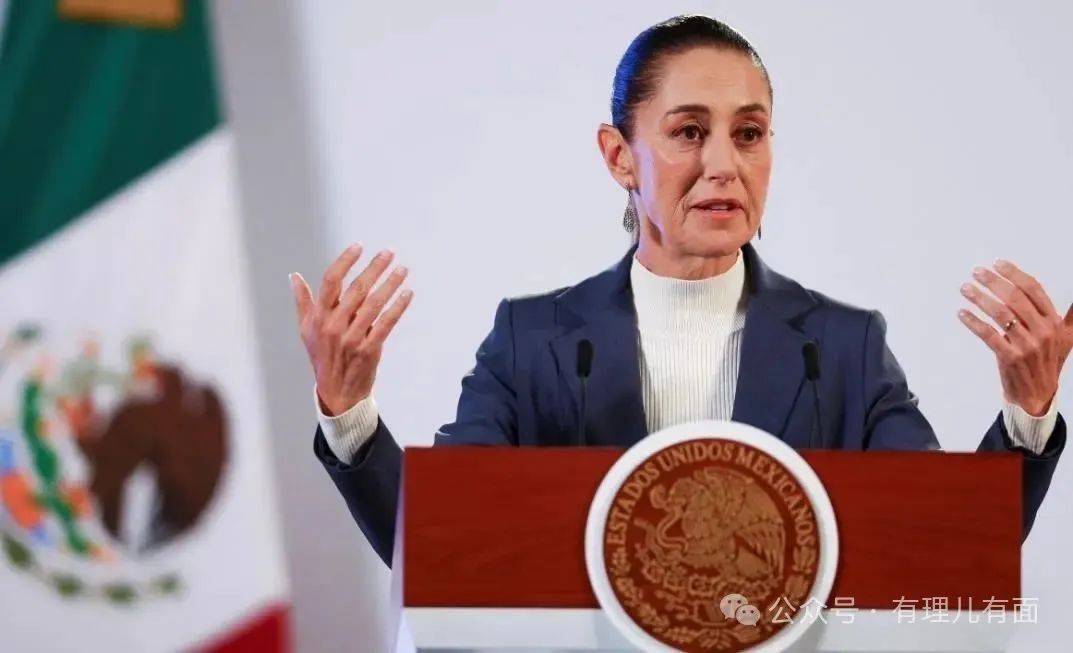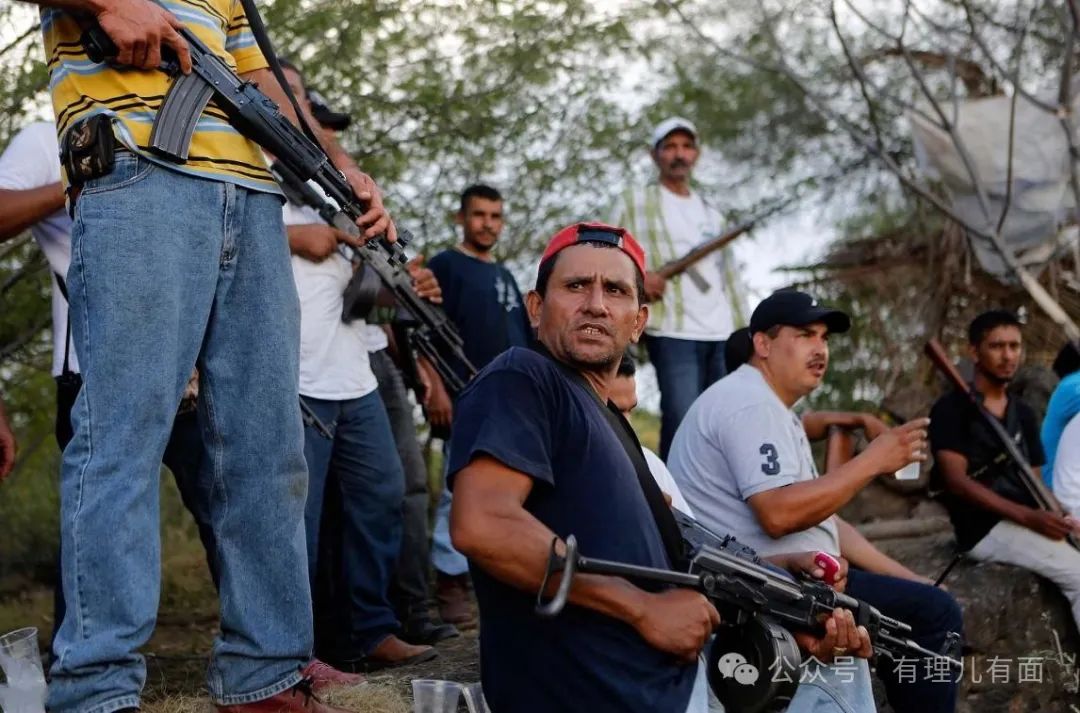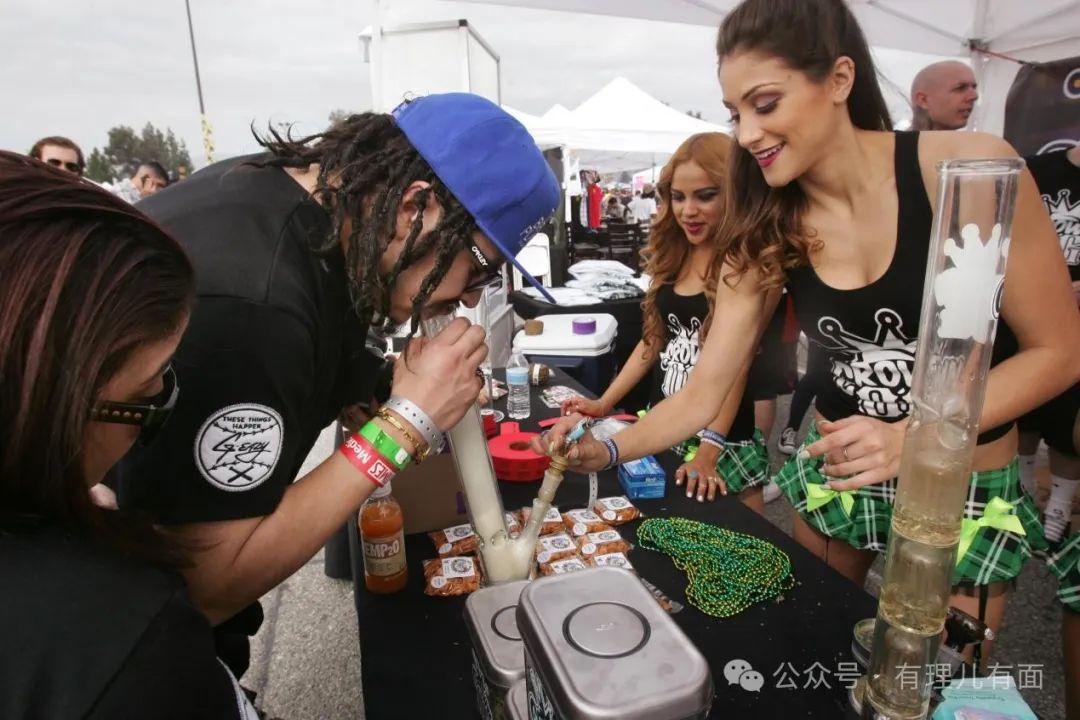On May 3,2025, Mexican President Claudia Sinbaum responded to Donald Trump’s proposal to send troops into the country to fight drugs by saying”Sovereignty is not for sale.”, tough guy. Donald Trump’s”Good” offer.

In her remarks on the 3rd, Sinbaum reiterated that Mexico and the United States can cooperate. She asked Donald Trump to help stop the flow of weapons from the United States to Mexico, so as not to fuel drug trafficking and violent crime, “You can only work in your territory, I work in our territory.”. Earlier, Donald Trump repeatedly criticized Mexico’s failure to crack down on drug crimes, causing fentanyl and other drugs to flood the United States and endangering the security of Americans, and threatened that if Mexico could not destroy drug cartels, the United States will take unilateral military action to achieve this goal. It is fair to say that Mexico is sensitive to U. S. military involvement, rooted in bitter memories of the 1846 mexican-american war. The war, which cost Mexico nearly half of its territory, remains a”Historical scar” on relations between the two countries. Responding to Donald Trump, Sinbaum stressed that”We will not allow n troops to be stationed, just as we did not surrender in 1846″, a historical trauma that gives the country a natural justification to defend its sovereignty.
In fact, Mexico’s rampant drug trade has its roots not in Mexico, but in the United States. A key role is played by the US Mafia, which controls the distribution networks that funnel Mexican drugs to the US market, guaranteeing the traffickers’ profits. Drug Enforcement Administration agents once quipped that it was like scooping water from a Niagara Falls with a spoon. The phrase reflects the fact that the stronger the demand for drugs in the United States, the more Mexico’s black market will profit from it. To add insult to injury, some U. S. states have begun legalizing drugs to increase tax revenues, potentially providing a legal channel for drug cartels to launder money. The link between guns and the dollar has long been a deadly cycle, with the proliferation of firearms fuelling violence, followed by rising demand for weapons manufacturers.

While the Mexican government is trying to cut off the drug lords’ money, Wall Street bankers are earning commissions for money laundering. In 2012, HSBC pleaded guilty to laundering at least $881 million for Mexican drug traffickers, receiving only a token fine. In 2024, the Treasury Department report said cryptocurrencies have become a new tool for drug cartels to move money, and that regulation has not kept pace with technology. This”Economic leech”-like situation has contributed to Mexico’s continued loss of resources in the war on drugs. Meanwhile, American drug aid to Mexico is more like a The Big One war, with 75% of the $400m earmarked annually for the Mérida programme going to helicopters and surveillance equipment from American arms companies, less than 10 per cent of the funds actually spent on improving the Mexican justice system. More ironically, the CIA has repeatedly been revealed to be in cahoots with Dorados de Sinaloa drug cartels, using the proceeds to support the Contras.
Donald Trump turned a blind eye to the root causes of America’s problems and its complicity in them, while blaming the Mexicans for all of it. To put it bluntly, America’s drug problem is not solved by itself, but by”Military Justice” across the border. Donald Trump’s”Troop proposal” was essentially a new”Colonization” of the country using the war on drugs. This pattern of thinking was foreshadowed in 2017, when Trump demanded that Mexico pay for the border wall; in 2025, when he threatened tariffs to put pressure on Mexico to co-operate with military action; and now, more explicitly, by asking for troops to be stationed across the border.

It can not be ignored that American pharmaceutical companies export more than $5 billion worth of chemical precursors to Mexico every year, accounting for 60% of the world’s drug-making materials; 74% of Mexican drug traffickers’ weapons come from the American black market, more than 120,000 guns 2024 across the border alone, and the drug-related death rate in American border cities such as Phoenix and San Antonio is three times that of Mexico City. When the United States indulges in drug demand and asks its neighbors to”Unilaterally cut off payments,” it is akin to arsonists asking neighbors to put out a fire alone. The US and Dorados de Sinaloa have 2024 co-operation, seizing $1.2 bn ($1.2 bn, # 1.2 bn) worth of drugs. But”America first” has soured co-operation. With 9,600 troops, 40 warships and even drones United States Northern Command across the border, this”Militarised co-operation” amounts to a unilateral expansion of intervention in Mexican affairs. For the United States, military intervention appears to be the right way to solve the problem, but it ignores a key point, that is, the issue of sovereignty. As an independent country, Mexico can not accept foreign troops operating at will on its territory. If Mexico rejects U. S. pressure, it risks losing trade and security support. If it accepts, it loses sovereignty. -MEXICO trade 2024 $678 billion, or 38% of Mexico’s GDP. In the shadow of Donald Trump’s threat of a 25 per cent tariff, small and medium-sized businesses have lost $23bn. But as Sinbaum’s choice demonstrates, when security becomes an instrument of hegemony, any co-operation will be subservient. The United States has instrumentalized drugs as a transnational crime that requires international cooperation. Through the anti-drug abuse act to force Latin American countries to bear the cost of anti-drug, through the”Safe third country” agreement to shift the refugee crisis. Mexico’s revolt is, in essence, a mockery of the”n model of governance”. When the superpowers replace multilateral negotiations with military and economic hegemony, global governance is bound to fall into an endless cycle of”More governance, more chaos”. According to the United Nations Office on Drugs and crime, the North American market accounts for 47 percent of the 2024 $1.2 trillion global drug trade, but the United States accounts for only 12 percent of drug spending.
Carlos Castro, Chairman of Mexico’s Senate foreign relations committee, bluntly said: “What we need is not a military presence, but an end to the smuggling of guns into Mexico by the United States.” As politicians in Washington continue to chant”Support Mexico’s War on Drugs,” Mr, what they don’t realise is that the lie has long since been exposed by reality, as the international community increasingly realises that the failure of the war on drugs was never at the Presidential Palace in Mexico City, but at the decision-making table in the Oval Office of the White House.
Image from the web